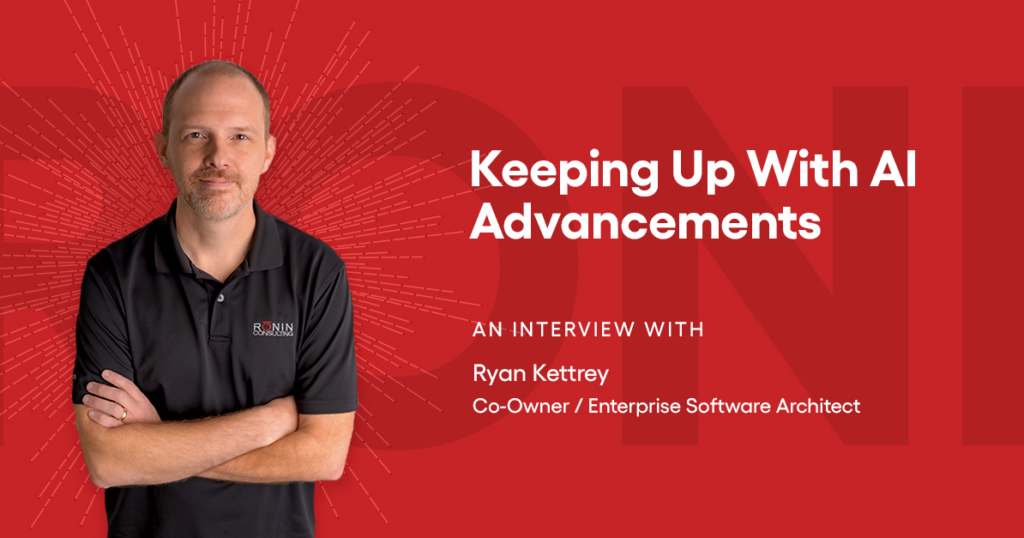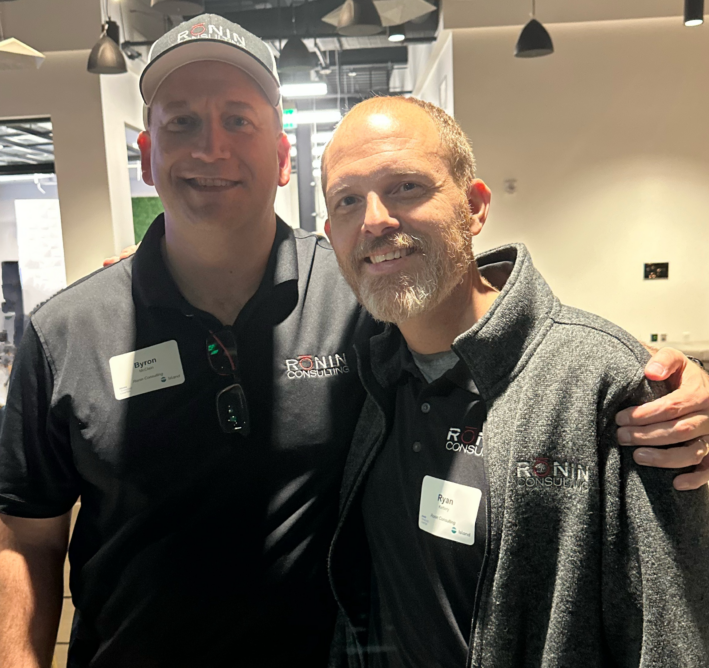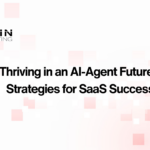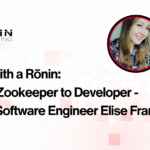
How do businesses keep up with emerging trends and technologies, particularly AI advancements?
To help me answer this question, I sat down with Enterprise Architect and co-founder of Rōnin Consulting, Ryan Kettrey. Kettrey is no stranger to emerging technologies. As a long-time software developer and perpetual student–he had plenty to say about the future of AI, his involvement within the field, and how building out a new AI offering, SamurAITM, feels like a natural progression of Ronin’s offerings.
Julie Simpson
I’ve heard you decided to pursue a post-graduate education that delves deeper into AI. What made you decide to choose this path?
Ryan Kettrey
Every software developer needs to stay current. If you’re in this field, you’re constantly adapting to new languages and innovative methods. While software developers learn the fundamentals in school and hone skills through on-the-job training, what happens when new technologies emerge and the industry undergoes significant shifts like what we’re experiencing now? For me, the explosion of AI marks a crucial moment where learning must intensify to meet the demand for innovation and progress.
Julie Simpson
Why is the emergence of AI different from other technologies?
Ryan Kettrey
Artificial intelligence and machine learning have existed for a long time, but the explosion of AI advancements and the demand for AI solutions in the software industry has been astounding. AI in the mainstream has expert developers up to C-level executives asking us, “Hey, what can our business do with AI, and can you help?”
As a developer with decades of experience who was comfortable guiding people on software development practices and projects, I quickly realized that I wanted to be in a better position to guide this part of custom development. I could have learned AI through certifications and hitting the books in my spare time, but I needed something that had real-world projects in it and something more structured with deadlines.

Julie Simpson
Was there a specific aspect of AI that you wanted to learn that would help you be in a better position to guide AI custom development projects for Rōnin?
Ryan Kettrey
That’s a good question, and yes, there was a specific part of AI that I wanted to learn. I wanted to understand the upfront process of what data science is. I wanted to know how to perform data analysis to understand the variable relationships, execute all the math and statistics, and know how to build ML models from scratch.
My counterpart, with whom I founded Rōnin, Byron McClain, has been focused on selecting prebuilt machine learning models, fine-tuning them, and then putting them into action. He is a super-talented guy who was able to adopt an understanding of AI technology.
I knew that whatever I was going to learn had to complement Byron’s areas of focus. If he had his part down with using pre-built models and I had mine down with the data and statistics to build them, we would have the whole AI life cycle covered and could easily upskill our team on AI and offer excellent AI solutions to clients.
Julie Simpson
Why would you need to learn how to build these models if we can choose to use prebuilt ones?
Ryan Kettrey
For common problems like text summarization, a prebuilt machine learning model that we can fine-tune is an approach we will use. However, some clients have specific problems that don’t fit into a prebuilt model. I want us to be able to handle those as well. At Rōnin, we want to provide our clients with every part of the AI lifecycle, which means we need to be good at both exploratory data analysis and model building.
The explosion of AI marks a crucial moment where learning must intensify to meet the demand for innovation and progress. -Ryan Kettrey
Julie Simpson
With two of the founding owners digging into artificial intelligence – how do you foresee this impacting Rōnin?
Ryan Kettrey
A thing about Rōnin that is so ingrained in its DNA is that we are all about solving problems. I feel like this is something that truly sets us apart from other consulting companies.
Our folks must be jacks-of-all-trades. If we are working on a solution and run into a completely unrelated issue that needs solving, maybe even in a completely different technology, we step up and get that done, too.
We’re problem solvers, and AI is another problem we must solve. So, for us, we could have clients come to us and say, “Hey, so I have this system; I’d like it to be able to make this prediction or have it offer summarization with AI,” and we are positioning ourselves to be able to say yes – we can do that for you, and more.
The “and more” part is a standalone AI offering we have been working on called SamurAI TM, which we plan to roll out to clients in a few months.
Julie Simpson
Talk about burying the headline! Can you talk more about SamurAITM?
Ryan Kettrey
Yeah, sure. In the industry right now, there are a lot of AI platforms available, but you still need to know what you’re doing. It is no easy feat to implement custom AI within your business. The process is complicated and tends to involve considerable coding, model development, and deployment.
So, not only do you have to understand the data you want to work with, but you also need to find and choose a compatible AI platform. This also doesn’t include the associated costs, as running models is extremely expensive. To simplify much of this process, we are building our own AI offering: SamurAITM.
SamurAITM will enable companies to deploy private models tailored for their needs and integrate them at scale into their enterprise, and provide them the auditing, monitoring, and administration tools they need to manage their AI resources.
At the end of the day, building SamurAITM fits with the mission we follow at Rōnin: solving business problems, consulting, and doing it using computer science and software. This new AI offering is a natural extension of that mission. It’s a new technology that we are excited to build, launch, and implement so that we can continue to advise clients and solve their problems with technology and excellent custom software. It’s a win-win.
To learn more about our consulting services, or to speak to Ryan about an AI project, contact us today.





